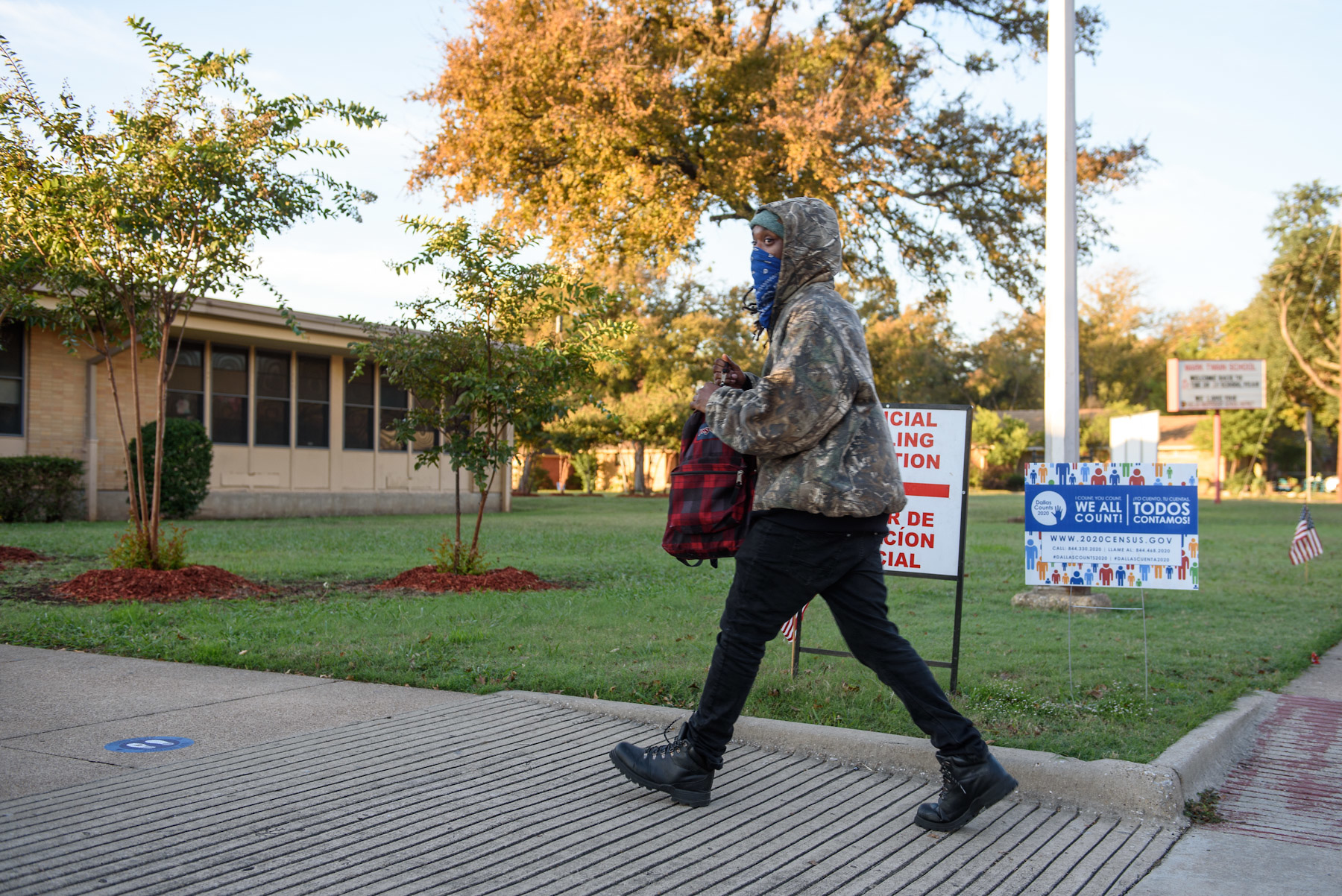Early voting kicked off Monday. Election Day is May 1. You’re a registered voter living in Dallas. You’ve done your research, you’ve chosen who to vote for in your City Council district. You’re at your polling location holding that little stylus they give you and staring at your ballot on a screen. You see that there are two items you weren’t expecting: City of Dallas Proposition A and City of Dallas Proposition B.
You pause, look around. Huh? The bored election worker is somehow picking her nose through her mask. Amazing, but not much help for your current predicament. Nobody warned you about this. What is Chapter XV of the Dallas City Charter? What is the Dallas City Charter? Who’s a qualified taxpaying citizen? What do these words in this order even mean and why do they make this sound so complicated? Shouldn’t voting be easy?
Don’t panic. The short version of what you’re being asked to decide is this: Should non-citizen residents of Dallas—mostly meaning immigrants (documented or otherwise) and refugees—be allowed to serve on advisory committees and boards whose members are appointed by local elected officials? There’s a slightly longer version, but first let’s look at the language as it will appear on every Dallas voter’s ballot.
City of Dallas Proposition A:
Eliminating the Requirement That A Member of a Board or Commission Created by the City Charter be Registered or Qualified to Vote. Shall Chapter IV, Section5; Chapter XV, Section 3; and Chapter XVII,Section 2 of the Dallas City Charter be amended to eliminate the requirement that a member of a board or commission created by the city charter be a registered or qualified voter?
City of Dallas Proposition B:
Eliminating the Requirement That a Member of the Civil Service Board be a Qualified Taxpaying Citizen. Shall Chapter XVI, Section 1 of the Dallas City Charter be amended to eliminate the requirement that a member of the civil service board be a qualified taxpaying citizen?
Voters elect City Council members. These City Council members appoint unpaid volunteers to various boards and commissions that study issues ranging from police oversight to public art to zoning. These boards and commissions then make recommendations to City Council members, who ultimately decide policy. But board and commission members hold a lot of sway, doing much of the legwork on things that determine the future of the city. Most recently, several council members took some well-deserved flack for attempting to appoint a known political consultant to a board tasked with helping redraw council districts during redistricting, which is coming up this year.
A vote “for” propositions A and B is a vote for allowing people who are not U.S. citizens (individuals who are not currently a “registered or qualified voter” or “qualified taxpaying citizen”) to serve on these advisory committees. This would open up eligibility to a whole lot of Dallas residents.
Dallas ISD recently changed its rules to allow non-citizens to serve on advisory committees to the school district. In a letter urging voters to do the same for the city of Dallas, five Dallas ISD trustees (Joe Carreon, Karla Garcia, Justin Henry, Ben Mackey, and Dan Micciche) note how many of your neighbors can’t now serve on City Council-appointed boards and commissions:
Our recent decision passed unanimously. All nine of our members, bringing a diversity of backgrounds and political affiliations, supported this change. That’s because, in order for advisory committees to be effective in a city or school district as large and diverse as Dallas, it’s critical they are representative of the entire population being served.
Immigrants, which comprise not only the undocumented but legal permanent residents and refugees, make up 24% of our city’s population, 32% of its workforce, and over 40% of its demographic growth between 2011 and 2016. To categorically deny ourselves the ability to appoint any of these community members under any and all circumstances would only serve to curtail our ability to make informed decisions.
Our immigrant neighbors are already contributing to our schools and other civic institutions in other ways. Noncitizens are allowed to and do serve in the U.S. military. And a recent report from New American Economy demonstrates that new Americans in Dallas contributed nearly $2 billion in federal taxes and over $500 million in state and local taxes.
In other words, these are Dallas residents who can’t vote, but who have just as much at stake—and just as much invested—as citizens. These propositions do not mean you’re allowing a Plano resident to serve on a board in Dallas. Everyone who lives here should have a say in shaping the future of the city, whether it’s by writing an email to your City Council member or by serving on an advisory committee. Democratic governance doesn’t begin and end at the ballot box.
Early voting continues through Tuesday. Election Day is May 1.





